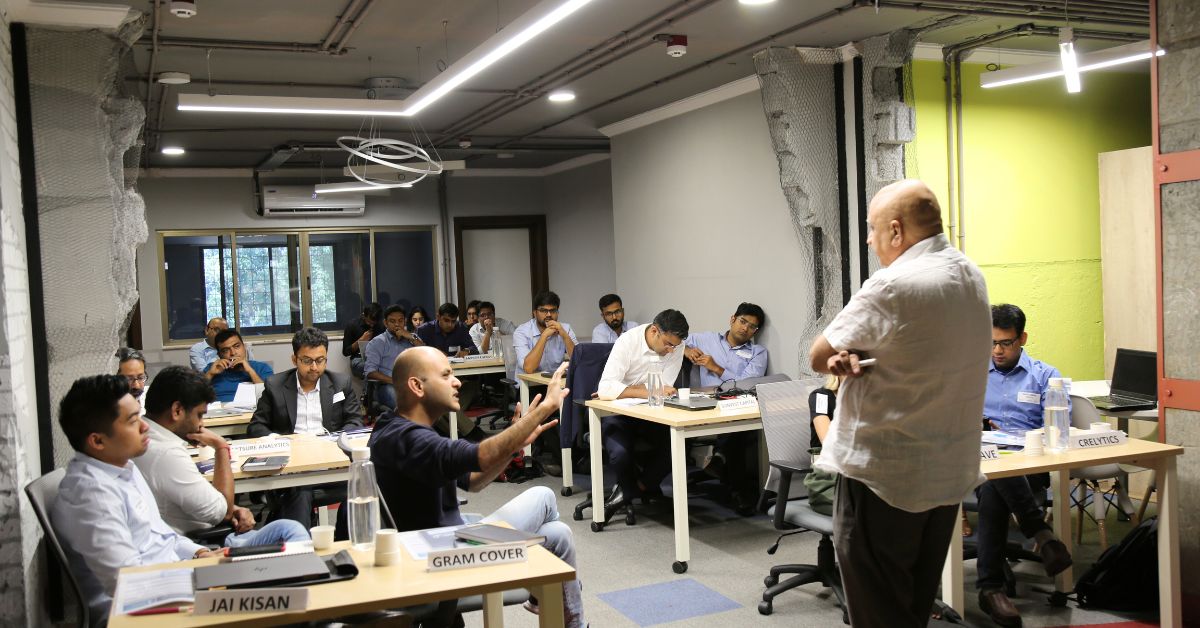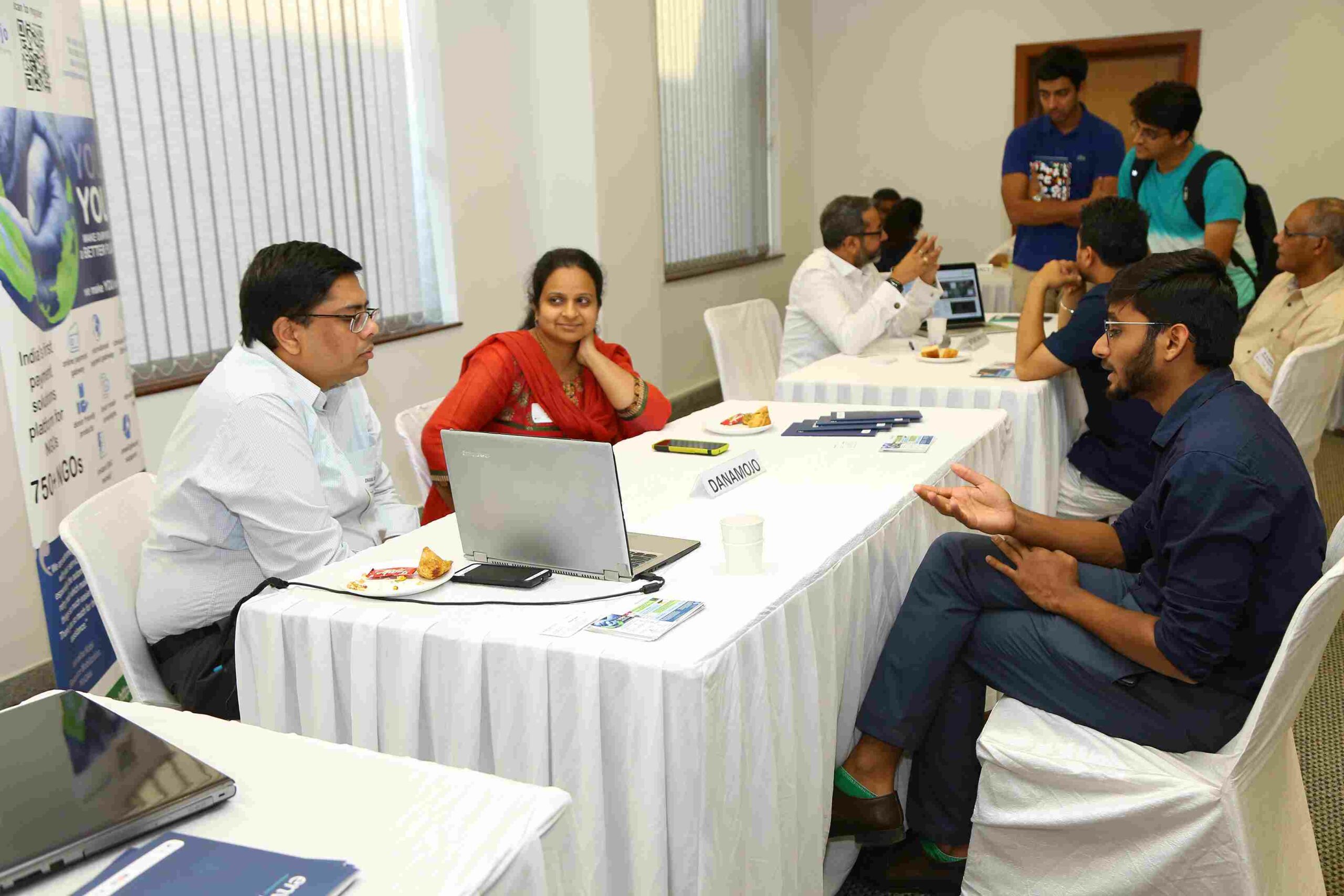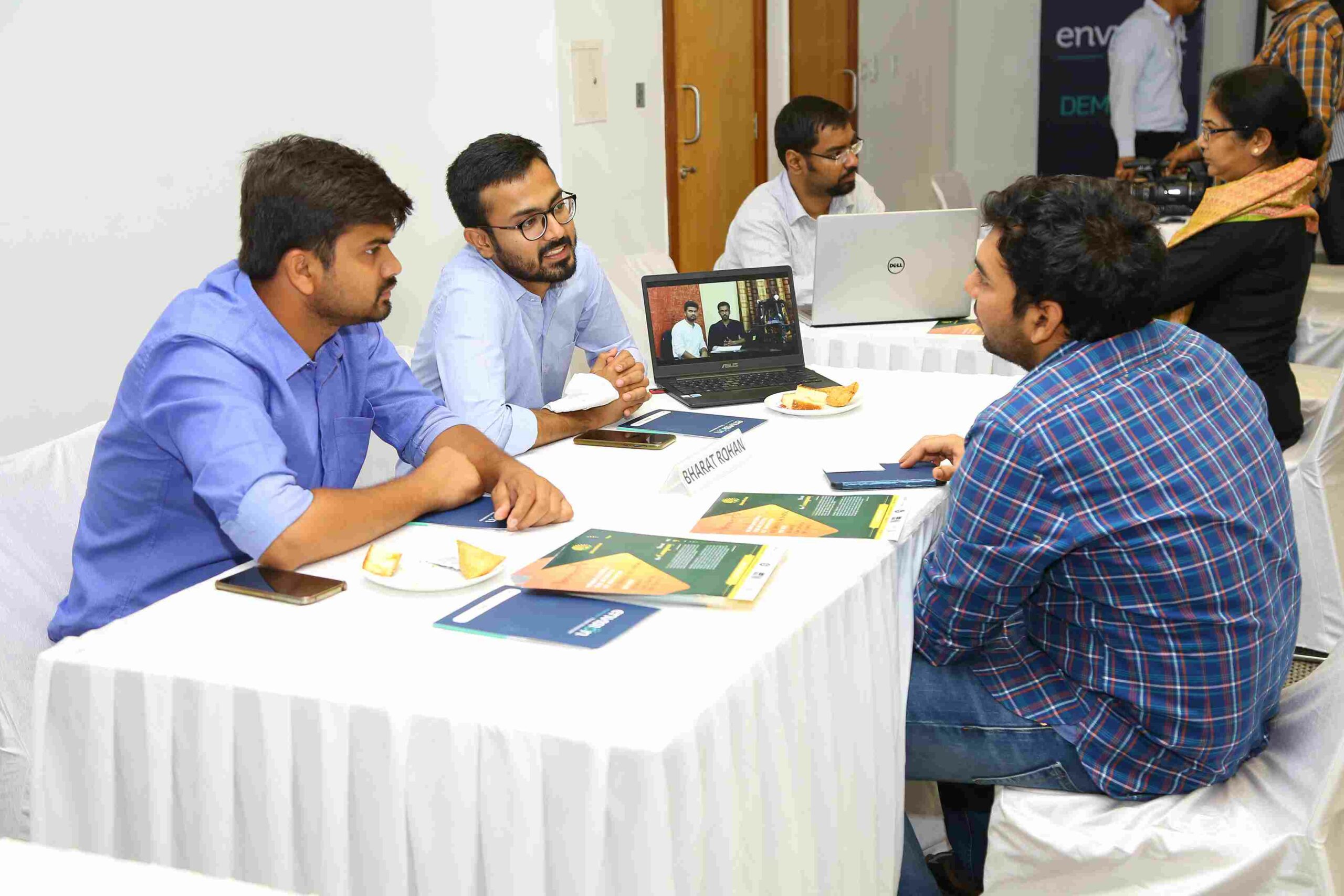How I-Venture at ISB’s Accelerator Program is Helping Startups Scale & Turn Their Innovative Ideas into Impact
The business accelerator AIC-ISB is helping startups turn innovative solutions into impact. Here's how six founders scaled up their businesses.

This article has been published in partnership with I-Venture @ ISB.
In 2019, Piya Bahadur went on a trip through the Indian countryside, which offered her a window into the lives of numerous small business owners concentrated in these areas. Two realisations dawned on her — crores of Indian families are supported by individuals running small businesses and that running a small business is complicated.
On returning from the trip, Piya resolved to come up with a solution to help small and micro-business owners understand, plan and grow their ventures, which was christened MeraBills.
The journey to building a startup is often a tough road, but Piya never found herself alone. At every step, she was mentored by the experts at AIC-ISB — a business accelerator empowering early-stage founders to build high-impact investable startups. Along with Piya’s startup, it has provided a launchpad for numerous other founders to get their ideas to fruition.
While Piya’s startup was in fintech, another founder Samiksha Ganeriwal’s ‘Kagzi’ focused on the environment, offering eco-friendly bamboo alternatives to PET bottles.
“It’s a mixed bag,” says Isha Handa, Assistant Vice President at AIC-ISB, referring to the range of businesses that the six-month-long accelerator programme has seen. Through the months, founders are equipped with the acumen to strengthen their business models.
As Isha details the programme, she emphasises that the first three months lay a keen focus on capacity building. “We help founders with go-to-market strategies, getting the building blocks of the business right, and conducting need assessment workshops. This gives them a clear picture of where they stand along with envisioning where they wish to be in the next six months in terms of the business goals.”
“The fourth month is dedicated to investor readiness,” says Isha, adding that this phase sees the founders receiving personalised guidance on their business pitches. Finally, the last phase of the programme spanning two months is designed to introduce them to ISB’s rich network pool of investors and corporates for exploring funding and pilot opportunities.
Startups are connected with foundations and philanthropic organisations from whom they receive customised support in their ventures. A post-programme support design is also in place to ensure no startup finds itself in the dark and can always access ISB’s pool of resources.
Here are six more startups that tasted success through this model:

1. Minbo Health
Perplexed about the rise of health conditions, such as diabetes and hypertension, among millennials, founder Ashish Vijh brainstormed on a solution. “In a world where everything is digitised, why can’t healthcare be too?” he wondered.
Minbo Health was the culmination of this idea. Through a personalised approach, the venture maps and tracks the data of patients. It then couples traditional bio-hacks with yoga therapy — all in an attempt to improve the users’ quality of life.
2. Green Hermitage
The cruelty-free fashion house helmed by Gayatri Varun is a step towards a greener planet. Modern-day tanneries (factories that treat animal skin to produce leather) pose respiratory hazards through the dust they emit, while also contributing to pollution.
The vegan leather alternatives by Green Hermitage aim to combat these problems.
3. Purple Ribbon
A report by the NIH indicated that a whopping 70 percent of the Indian population resides in Tier 2 and 3 cities. Ironically, 95 percent of cancer care facilities are concentrated in urban India. The gap is significant.
When founder Ratul Lahiri noticed the increasing rate of dropouts in cancer treatments from rural India, he probed to find the cause. He discovered that the looming expenses of travel to metro cities coupled with chemotherapy costs were a permanent cloud over these patients.
So, Lahiri started PurpleRibbon as a way of bringing cancer care to the patients’ doorsteps by turning existing under-utilised nursing homes in every neighbourhood into quality chemotherapy daycare facilities.

4. Neoperk
The end-to-end soil testing solution is the brainchild of Satyendra Gupta who forayed into this area after noticing how sample mismanagement, unreliability of results, and readability issues were impacting farmers in India. With one lab per 88,000 land-holding farmers, the problem was severe.
Today, Gupta’s comprehensive solution deploys standard operating procedures for the collection, processing, and testing of soil.
5. EcoOrbit Solutions
Though India generates a magnanimous 50,000 tonnes of dry waste per day, only 50 percent gets segregated and processed. The rest goes into landfills. This, founder Abhishek Gorle noted, was because material segregation is manually driven and thus labour-intensive. Since the process takes longer, waste continues to pile in landfills and recycled products continue to be priced high.
Gorle’s EcoMonitor uses a deep learning-based machine vision system that identifies different waste materials. Whereas the EcoArm, a smart robotics solution, segregates it as per colour and type of material.
6. Solinas
The problem of wastage and contamination in the water pipeline industry is huge. It is highly unorganised and manually managed, creating lots of problems for the end customers as well as for the pipeline companies.
Moinak’s solution caters to both water and sanitation sectors, which helps in pipelines, manholes and sewer lines. His product Endobot is a pipeline crawler robot that inspects 90 mm to 1,000 mm pipelines to collect data like cracks, dents, deformed pipe joints, pipeline inclination, etc. It can also predict the C-value and ovality of the pipeline using laser profiling and mounted sensors.
Edited by Pranita Bhat
If you found our stories insightful, informative, or even just enjoyable, we invite you to consider making a voluntary payment to support the work we do at The Better India. Your contribution helps us continue producing quality content that educates, inspires, and drives positive change.
Choose one of the payment options below for your contribution-
By paying for the stories you value, you directly contribute to sustaining our efforts focused on making a difference in the world. Together, let’s ensure that impactful stories continue to be told and shared, enriching lives and communities alike.
Thank you for your support. Here are some frequently asked questions you might find helpful to know why you are contributing?


This story made me
- 97
- 121
- 89
- 167












